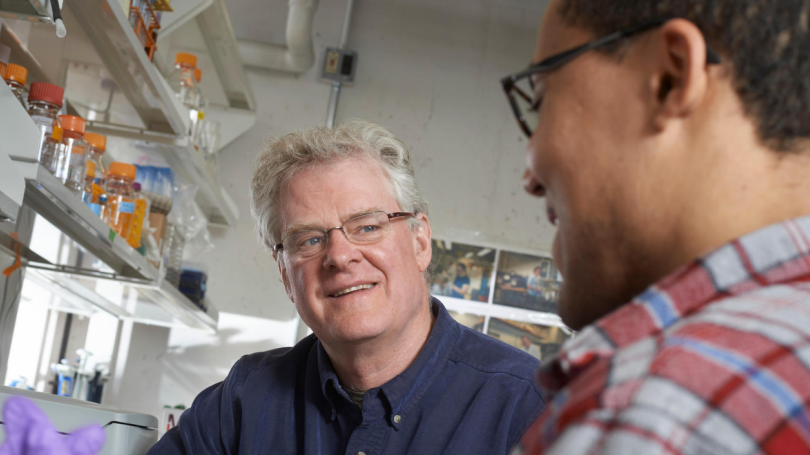
- About
- Education
- Research
- Engagement & Collaboration
- News & Events
Back to Top Nav
Back to Top Nav
Back to Top Nav
Back to Top Nav
HANOVER, NH – August 12, 2024 – A new study published in Environmental Research Letters has potential to transform the long-standing perceived food-versus-fuel conflict that has limited support for biofuels for decades. Conducted by a team of 13 authors led by Dartmouth Engineering Professor Lee Rybeck Lynd, the research describes a strategy for using crop residues to produce large amounts of biofuel, improving—not sacrificing—the sustainability and economics of food production.
The study challenges the conventional belief that biofuels made from crop residues, such as straw, decrease soil carbon levels when residues are removed from the field. Instead, Lynd and colleagues provide evidence that this decrease can be avoided by returning the unfermented byproduct of biological conversion of crop residues back to the soil. This practice, according to the study, can also reduce the cost and greenhouse gas emissions associated with nitrogen fertilizer application.
"Modern biofuels have the potential to benefit the climate but have historically faced opposition due to concerns about land availability and soil quality," explains Dr. Stephanie Herbstritt at Clean Air Task Force. "This study, however, suggests that these trade-offs could be mitigated. If further research confirms these findings, it would be a major breakthrough for both climate and agricultural systems."
The research highlights that most previous studies assume the byproduct of cellulosic biomass conversion is either burned for process energy or converted into a revenue-generating product. While returning the byproduct to the soil means forgoing these energy and revenue benefits, the study demonstrates that this approach is feasible and sustainable.
Martin Keller, Director of the National Renewable Energy Laboratory, describes the study as "a potential game changer." Coauthor Professor Pete Smith, a leading expert on land-based climate solutions and a frequent contributor to reports by the Integovernmental Panel on Climate Change adds, "This study answers a crucial question about the sustainability of biofuel production as it shows that appropriate processing of crop residues can be used to produce sustainable biofuels from land already used for agriculture without compromising soil health."
The potential impact of the "no regrets" biofuel production route articulated by Lynd and coauthors is significant. The paper estimates that converting half of the 100 exajoules (EJ) of global crop residues produced annually could yield approximately 25 EJ of liquid fuel, depending on the process. This is significant compared to the approximately 15 EJ of fuel used by the global aviation sector, where biofuels are widely considered as a leading low-carbon option. Currently, global production of transport biofuels is around 4 EJ.
Dan Sperling, Founding Director of the Institute of Transportation Studies at U.C. Davis, observes, "Cellulosic biofuels are desperately needed to realize low-carbon goals, but face obstacles related to cost and land. Of great potential significance, this study opens a door to gracefully resolving the land obstacle."
Media Contact:
Cate Homicki
Director of Communications
Arthur L. Irving Institute for Energy and Society at Dartmouth
catherine.a.homicki@dartmouth.edu
Research Contact:
Lee Rybeck Lynd
Paul E. and Joan H. Queneau Distinguished Professor of Engineering
Thayer School of Engineering at Dartmouth
lee.r.lynd@dartmouth.edu
About the Arthur L. Irving Institute for Energy and Society at Dartmouth
The mission of the Arthur L. Irving Institute for Energy and Society at Dartmouth is to accelerate an affordable, reliable, and equitable clean energy transition for the benefit of society. Sources of support for this study included the Center for Bioenergy Innovation and an Irving Institute seed grant.